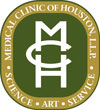When it comes to maintaining heart health, finding the right cardiology center can be a life-altering decision. Whether you are dealing with heart disease, experiencing symptoms that concern you, or simply seeking preventative care, understanding what to expect from a cardiology center is crucial. Here’s a guide to help you navigate the services and experiences you might encounter at a cardiology facility.
Understanding Cardiology Services
Cardiology centers are specialized medical facilities focused on diagnosing and treating diseases and conditions related to the heart and vascular system. When you visit a cardiologist, you’re consulting a doctor who has extensive training in understanding the complexities of the heart and its functions.
Diagnostic Tests
Cardiology centers offer a range of diagnostic tests to assess the health of your heart. These may include:
- Electrocardiogram (EKG): This test records the electrical activity of the heart and can help detect heart problems.
- Echocardiogram: An ultrasound of the heart that creates images to check for heart disease.
- Stress Tests: These tests measure how your heart performs under physical stress, often involving a treadmill or medication that simulates exercise.
- Holter Monitoring: A continuous recording of your heart’s rhythm, typically for 24 to 48 hours, to detect irregularities.
Interventional Procedures
Some cardiology centers also offer interventional procedures such as:
- Angioplasty: A procedure to open blocked arteries and restore normal blood flow to the heart.
- Stent Placement: The insertion of a small mesh tube to keep an artery open after angioplasty.
These procedures are often performed in a catheterization lab within the cardiology center and may require a short hospital stay.
Consultation with a Cardiologist
During your initial consultation, a cardiologist will review your medical history, perform a physical examination, and discuss any symptoms or concerns you have. Be prepared to answer questions about your lifestyle, dietary habits, and family history of heart disease.
Personalized Treatment Plans
Based on your diagnostic results, the cardiologist will work with you to develop a personalized treatment plan. This may include lifestyle changes, medication, and, if necessary, surgical interventions. Cardiology centers often have a team approach, with nurses, dietitians, and other specialists working together to provide comprehensive care.
Follow-Up and Ongoing Support
After your initial treatment, regular follow-up visits will be crucial for monitoring your progress and adjusting your treatment as needed. Many cardiology centers offer support groups or rehabilitation programs to help patients adjust to lifestyle changes and manage their heart health effectively.
Choosing the Right Cardiology Center
When selecting a cardiology center, consider factors such as the qualifications and experience of the cardiologists, the range of services provided, and the facility’s reputation. It’s also important to ensure the center accepts your health insurance and is conveniently located for ongoing care. By knowing what to expect, you can approach your visit to a cardiology center with confidence and take proactive steps towards better heart health. If you have any questions or would like to share your experiences with cardiology services, feel free to leave a comment below.
